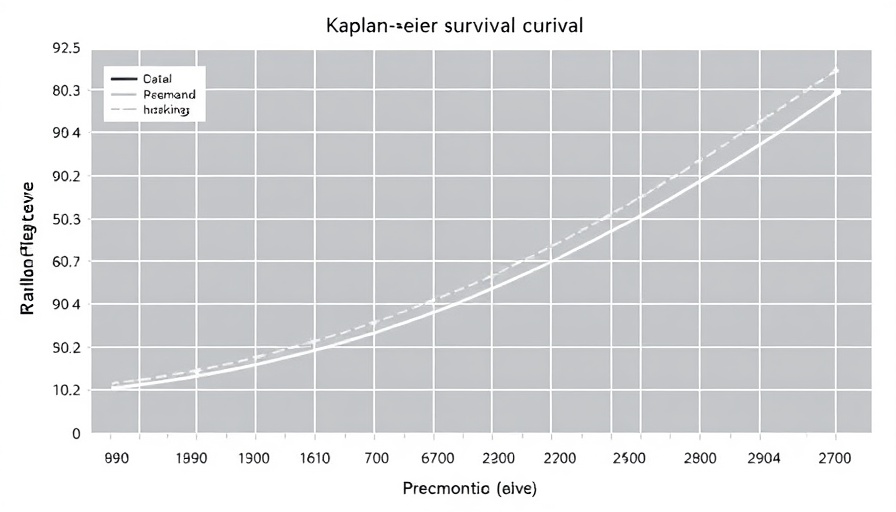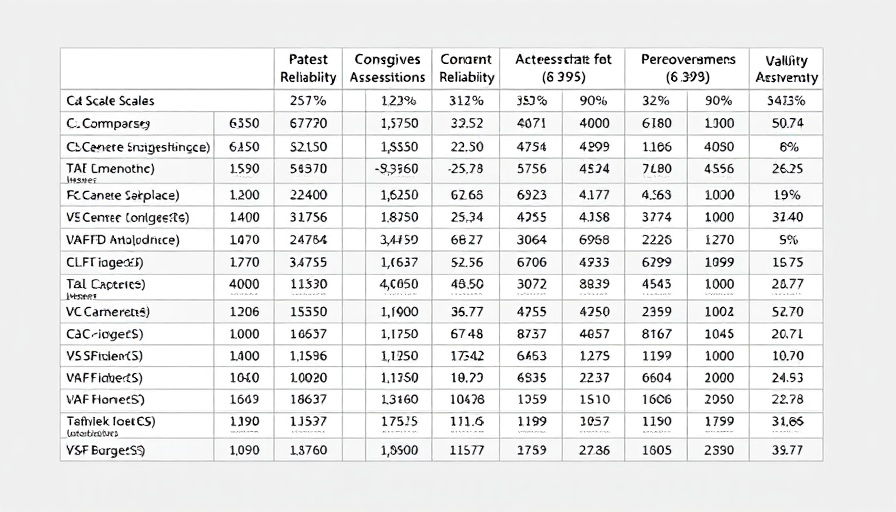
Understanding Oropharyngeal Dysphagia and Its Impacts on Aging
Oropharyngeal dysphagia (OD) is a significant health concern, particularly among older adults, as it encompasses not just the difficulty in swallowing but also poses severe risks such as aspiration pneumonia, malnutrition, and dehydration. These complications can drastically affect quality of life and longevity, making it essential to address dysphagia in geriatric populations.
Linking Cough Force and Health Outcomes
A fascinating layer of this condition is the association between cough force, as measured by peak expiratory flow (PEF), and pneumonia incidence. In a recent longitudinal cohort study, researchers found that patients with lower peak flow rates faced a significantly higher risk of developing pneumonia when compared to their counterparts with stronger cough force. This correlation is vital, as coughing effectively clears the airway, showcasing how respiratory strength can directly impact overall health outcomes in aging patients.
Pneumonia Risk: A Closer Look
The study highlighted the fact that 38% of participants developed pneumonia post-discharge, with a staggering mortality rate of 64% observed during an average follow-up of nearly four years. This raises an important question: How can we effectively monitor and intervene in cases of OD to prevent such adverse outcomes? Understanding the mechanics of cough and its prognostic value provides a framework for clinicians to identify at-risk individuals sooner, ideally before complications arise.
Implications for Patient Care and Management
The research emphasizes the critical need for tailored interventions that cater to the severity of dysphagia among this demographic. For patients identified with severe dysphagia, strategies such as nutritional support, speech therapy, and targeted exercises to strengthen swallowing musculature may be pivotal in reducing mortality risks. In parallel, integrating assessments of cough strength can provide healthcare providers with an additional tool to enhance patient monitoring and management.
The Role of Telomeres in Aging and Disease
This study not only unveils important connections between dysphagia and pneumonia risk but also touches on broader themes of aging and cellular health. Telomeres, often likened to the protective caps on chromosome ends, naturally shorten as we age, impacting cellular function and longevity. Research in telomere biology emphasizes that factors like chronic stress, inflammation, and lifestyle choices can all influence telomere length, underscoring the importance of holistic wellness approaches for aging populations.
Integrating Knowledge for Better Health Outcomes
Health-conscious individuals can draw insights from this intersection of dysphagia management and telomere research to foster better health strategies. For instance, incorporating antioxidant-rich foods or telomere-boosting supplements can potentially mitigate some of the cellular damage associated with aging, thus improving overall resilience and health outcomes. Furthermore, biohacking approaches can be tailored to support swallowing function, overall vitality, and even longevity.
Conclusions and Future Directions
The implications from the findings are clear: integrating assessments of cough force and dysphagia severity into routine geriatric care can significantly alter patients' health trajectories. As research continues to evolve, professionals in health and wellness must stay informed about emerging strategies and interventions that support longevity and quality of life in older adults.
Next time you consider the importance of maintaining not just a healthy diet or exercise regimen, remember the staggering role that airway health plays in aging. Staying updated with research in fields such as telomere biology could ultimately lead to shifts in how we approach health and wellness in our later years.
If you seek to learn more about enhancing cellular health and combating the impacts of aging through science-backed approaches, stay tuned for upcoming studies and insights that can guide your journey toward longevity and well-being.
 Add Row
Add Row  Add
Add 




 Add Row
Add Row  Add
Add 


Write A Comment